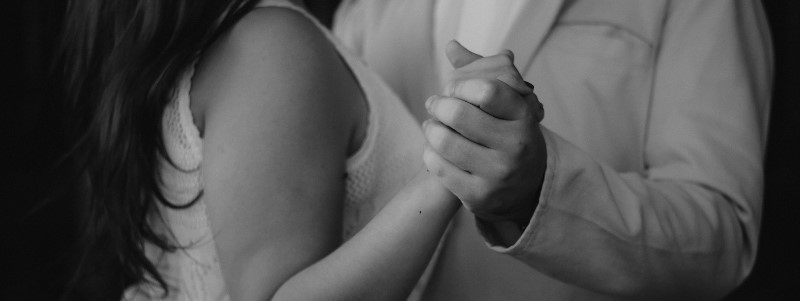The considerable volume of writing on relationships is littered with metaphors to explore the intricate connections between people. Most frequent might be images of journeys (‘we had come to a crossroads – an obstacle’, ‘it always seems uphill’); of chemistry (‘I felt the spark had gone’; of sport (‘out of my league.’ ‘own goals’); even, of war (‘battles, bombs and victories’). There are many such in the lexicon, each proving useful in examining particular aspects of the emotional engine of relationships.
Dance as Metaphor
One of the most useful metaphor in working with couples is dance. It is an analogy which allows many of the complexities of a couple relationship to be examined. We might think about the negotiated ‘choreography’ – the way in which the individuals move symbolically in relation to each other and how distance and closeness might change according to the dance being played out. Or we could consider aspects of control, of who wants to take the lead (or give it up) and what this tells us about the relationship overall.
You do not need to be an expert on dance to understand that being in the moment and moving with some other person in the same space is going to take a degree of synchronicity. At times it will require that one leads as the other follows. And, inevitably, in keeping all things in balance, there will some testing periods in maintaining a consistent distance between the two protagonists, particularly as the music undergoes a change of dynamic. What seemed quite manageable in one context, can feel overwhelming in another.
What’s Your Role?
The roles agreed by the dancing couple are contracted quite consciously, but within a relationship that negotiation is often unconscious. As skills and desires change or grow, so the individuals might feel uncomfortable in their prescribed role – no matter how happy they might have been in that role previously. In the initial stages, one partner might have been happy to cede control, to allow themselves to be led and to enjoy the feeling of a protective and guiding presence. However, what once felt protective, might now feel smothering; what once felt guiding, might now feel controlling; where once we were happy to follow, now we want to lead. Understanding and making conscious these roles is important in avoiding resentment and anger.
When the dance gets difficult
When the dance flows, it feels effortless – but it can feel hectic. So much change, so much required – and on the hoof! It feels overwhelming at times – and may even make us think that giving up dancing altogether might be the answer. Perhaps we need a re-set – one where we would do well to remember that dance – like relationships generally – is one of the most natural, most primal of human activities. Our oldest human ancestors would have swayed in time to the beat of a drum – and they would have moved symbolically in likewise rhythm with family, friends and partners.
Learning to accommodate change – or doomed to repetition
The threat to us is not from the dance itself – after all, we well know how joyful and life enhancing it can be. The real threat is change. As the inner worlds of the protagonists seek to find meaning and expression, so the relationship plays out and the couple move around each other – closing and distancing, leading and following, taking and ceding – in a figurative dance within which both participants are testing and exploring their worlds. Change is likely – but it will not necessarily be synchronised. And neither will it necessarily be well communicated. Toes will be stepped on; profanities will be muttered. We may even believe that, with another partner, our dancing would be so much better. And so, we do that: we choose another partner. We begin another dance – closing and distancing, leading and following, taking and ceding – our inner selves being acted out repetitively until we learn to better understand ourselves and how we relate to the people around us – until we learn how to dance better!
Brighton and Hove Psychotherapy is a collective of experienced psychotherapists, psychologists and counsellors working with a range of client groups, including fellow therapists and health professionals. If you would like more information, or an informal discussion please get in touch. Online therapy is available.

Leave a Reply